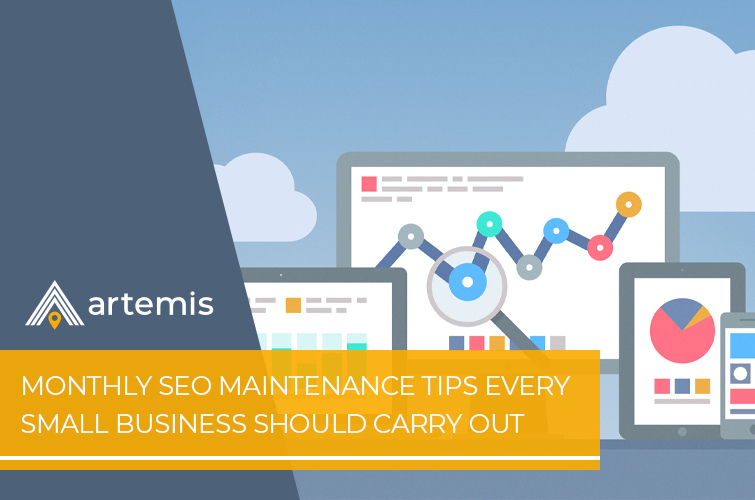Monthly Website Maintenance Tips for Small Businesses

A website is the heart of any business, and it needs to be reliable to enable you to meet your goals and build your reputation. Regular website maintenance is one way to keep your site running smoothly and protect your company from any future headaches. Here are some maintenance tips every small business should schedule in on a monthly basis to keep their website functioning well.
Broken links are more than just a frustration for your customers. They negatively impact the user experience of your website, but they’re also damaging to your SEO strategy. If a search engine can’t find links to pages, it will have consequences for your rankings. From moved pages or links pointing to pages that no longer exist, to spelling errors in links or replaced images that have a new file name, broken links can appear for a variety of reasons. So, run a regular check to ensure all your images are displaying properly and links are working as they should.
Perform regular security checks
Take time to update any software you use, install any patches and bug fixes, and make sure that the plugins and extensions you’ve installed are always up to date. This makes your site less vulnerable to hackers and also streamlines performance, so you and your team can work more efficiently.
Improve site speed
Most small businesses don’t consider the speed of their website, but it’s an important ranking factor and could affect your conversion rates (conversion rates drop by 7% for every 1 second of load time). As you add more pages, social buttons and visual content to your site, the load time increases, so check your site once per month to monitor speed times. Google’s Page Speed tools are an easy way to check this quickly.
Publish fresh content
For small businesses, a blog is a great opportunity to attract more site visitors, increase inbound links and build your brand as an authority in your industry. But having a blog isn’t enough – you need to be sure it’s active and your content is promoted. Consistency is key, so keep your site and your blog fresh with regular posts, from industry insights to company news that’s relevant to your customers.
Ensure contact info is kept up to date
You might be surprised just how many businesses don’t take the time to keep their contact details up to date. If you’re one of them, make sure you’re scheduling in time to review these essential details – make sure your opening hours are correct and contact forms work. If you use a call tracking number, you also want to dial it from a separate phone to check calls are being passed through. It’s vital for any business, but especially when it comes to improving your local SEO efforts.
Review your analytics
Reviewing your site’s analytics is the most effective way to stay on top of any issues and detect potential problems early, so they don’t cause irreparable damage to your website performance. You can monitor traffic trends, bounce rates, engagement metrics and more, so you know precisely where to make changes for a site that’s best suited to your business’ needs.
Many small businesses don’t realise that you can’t simply ‘set it and forget it’ when it comes to your website. It needs to be maintained regularly to deliver the best experience for your customers. For advice on how to keep your site performing well and ensure positive results for your business, get in touch with our friendly team who can help you optimise your website.

